The Overview of Thailand’s Insurance Industry
The storm of COVID-19 has stirred up a wave of mental health issues, embarking on many changes in our approach to health and wellbeing. People worldwide, therefore, paid more attention to the insurance sector than ever. Thailand is not an exception.
In addition, the pandemic outbreak also caused significant interruptions to the operations of many insurance providers in Thailand. Customers’ wants and behaviors shifted instantly, forcing insurers to rethink and redesign their business models for the new business environment.

However, the scenario was beneficial since it spurred the industry towards a more ideal, contactless, and customer-friendly environment.
When Thai people consider purchasing insurance, four main factors influence their decision. These factors make up the overall scenario of the insurance industry in Thailand.
In Standard Insights’ survey of over 500 respondents on the Insurance Industry in Thailand, we aimed to discover the Thai population’s perception, ownership, and preferences toward this sector. We were assisted by the InsureTech company OneDegree in the survey design of the research.

According to our survey, more than half of the Thai respondents (57%) have COVID-19 coverage through their insurance. It highlights the importance given to this coverage in Thailand.
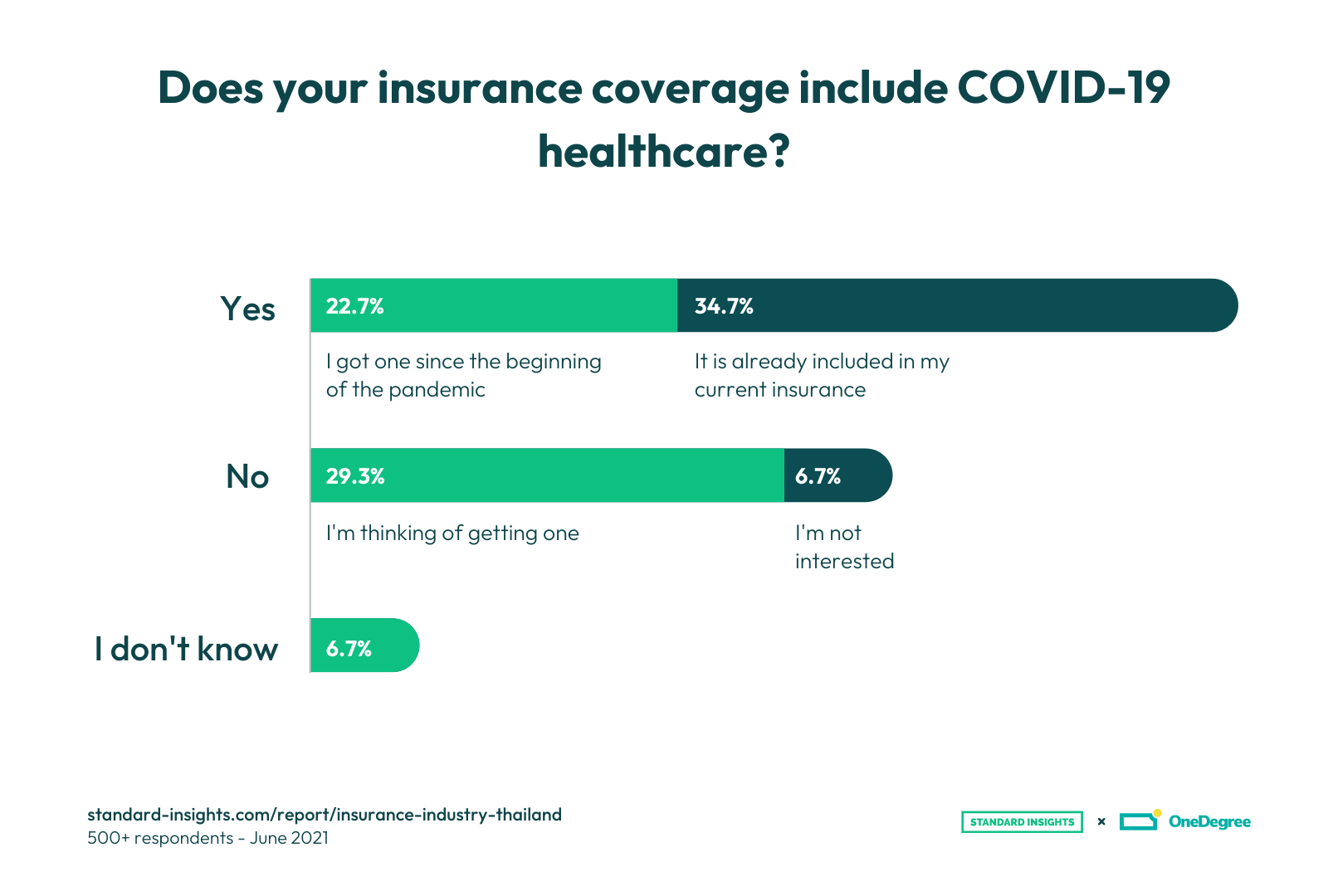
Regarding top insurance products, health insurance is the most owned product in Thailand (60%), followed by vehicle Insurance (46%), and home insurance (29%).
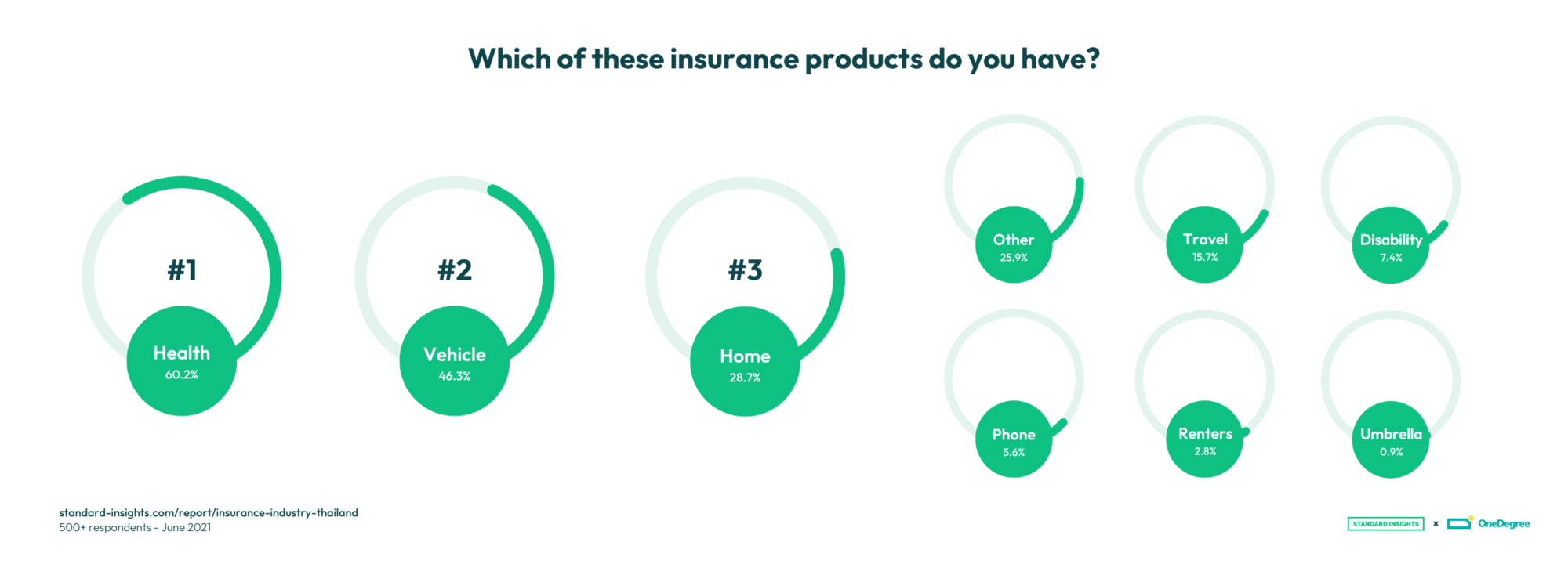
When the respondents were asked about insurance companies they know and consider the best, AIA came first for the majority.
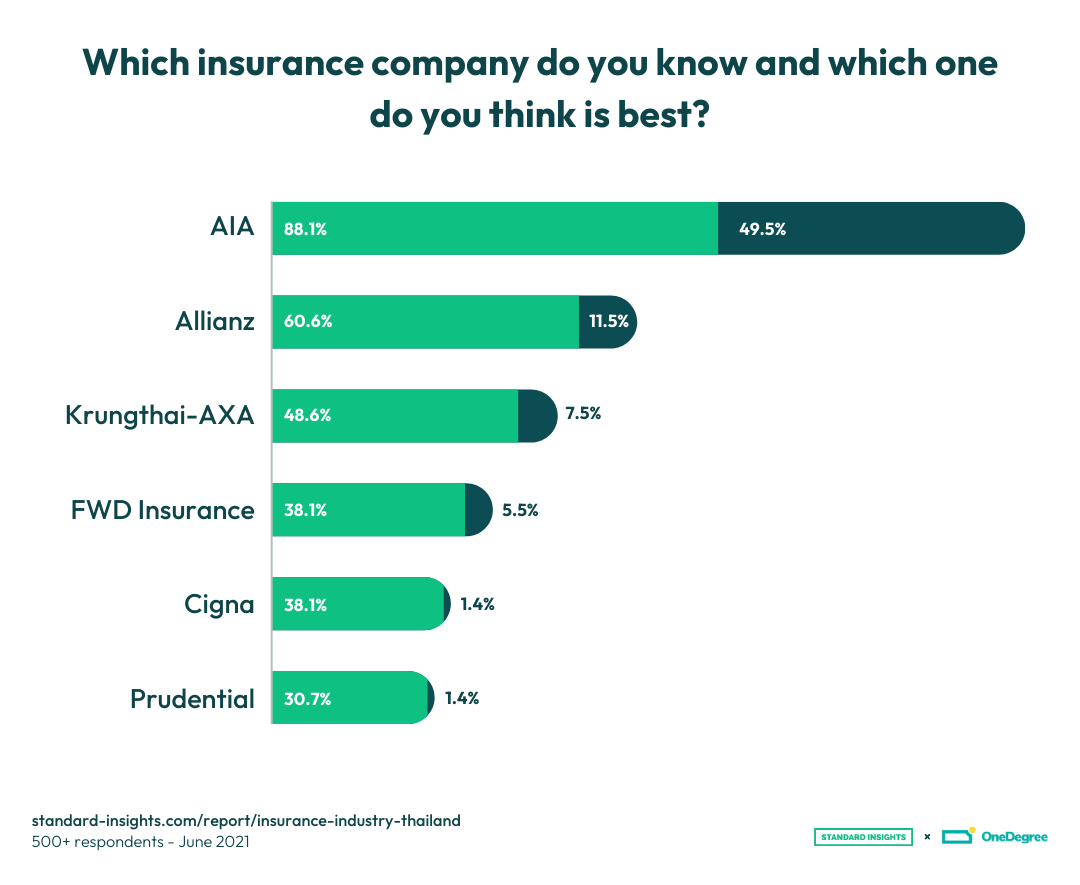
And 50.6% said they are currently satisfied and plan to keep the relationship with their insurance company.
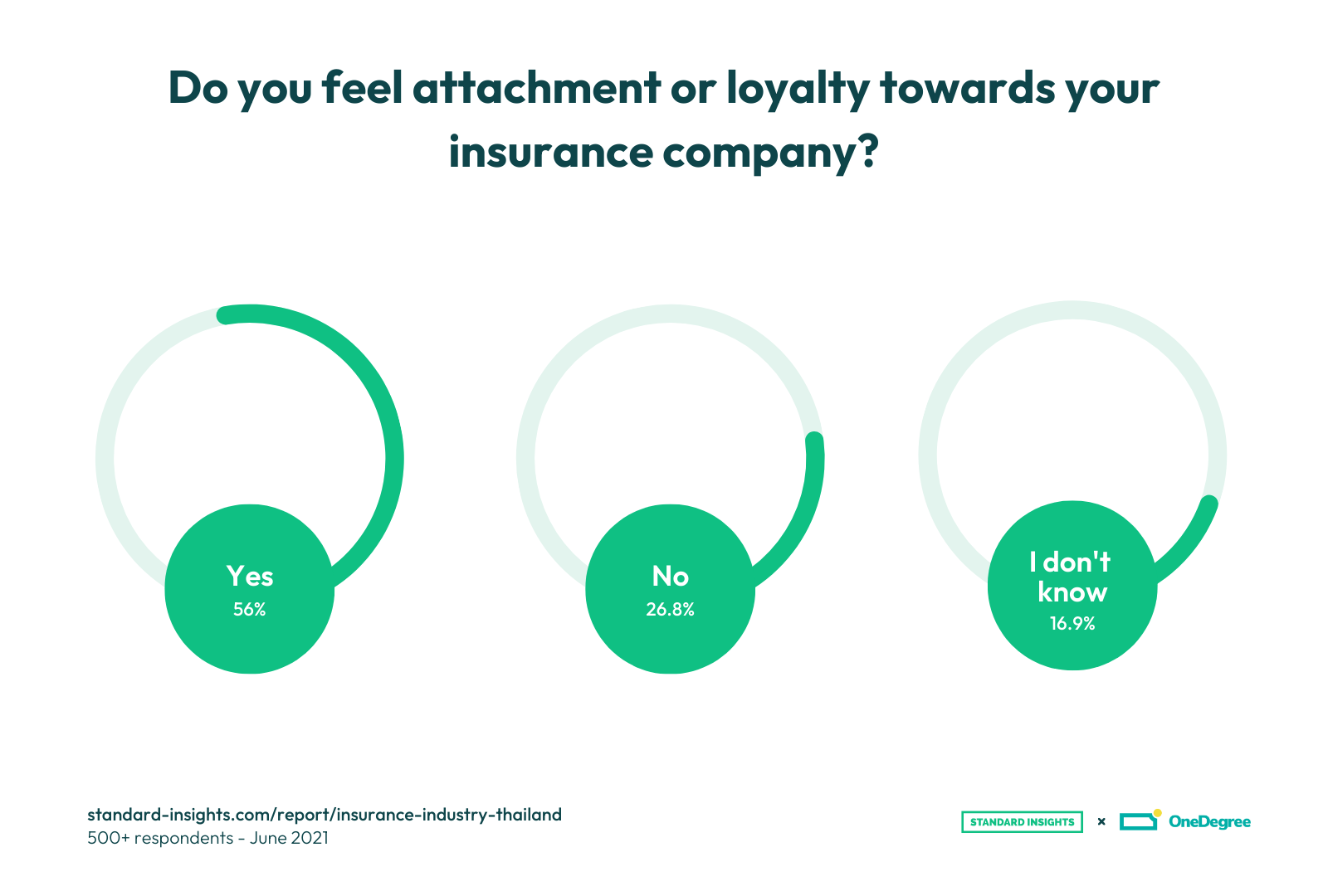
4 Factors Affecting Thais’ Insurance Purchasing Decision
Many factors influence a buyer’s decision to purchase insurance products or services. However, this article will pinpoint the four most impacting factors. So keep scrolling down and figure it out with us!
1. Policy Coverage
Insurance coverage assists clients in recovering financially from unforeseen occurrences such as automobile accidents or the loss of a family’s income-producing adult. The insured individual pays a premium to the insurance company in return for this coverage. Many factors frequently impact insurance coverage and prices.
The insurer manages risk by charging premiums. For example, when there is a greater probability that an insurance carrier may have to pay out money toward a claim, they can address the risk by charging a higher premium.
Most Thai respondents considered policy coverage an essential factor when purchasing insurance. In addition, 15.6% of them also shared that they did not buy insurance due to the company not offering appropriate coverage.
That’s why many Thai people choose not to purchase insurance if it is too expensive (24.3% – according to our survey). Moreover, price is also considered the second important factor influencing people’s insurance purchase decisions.
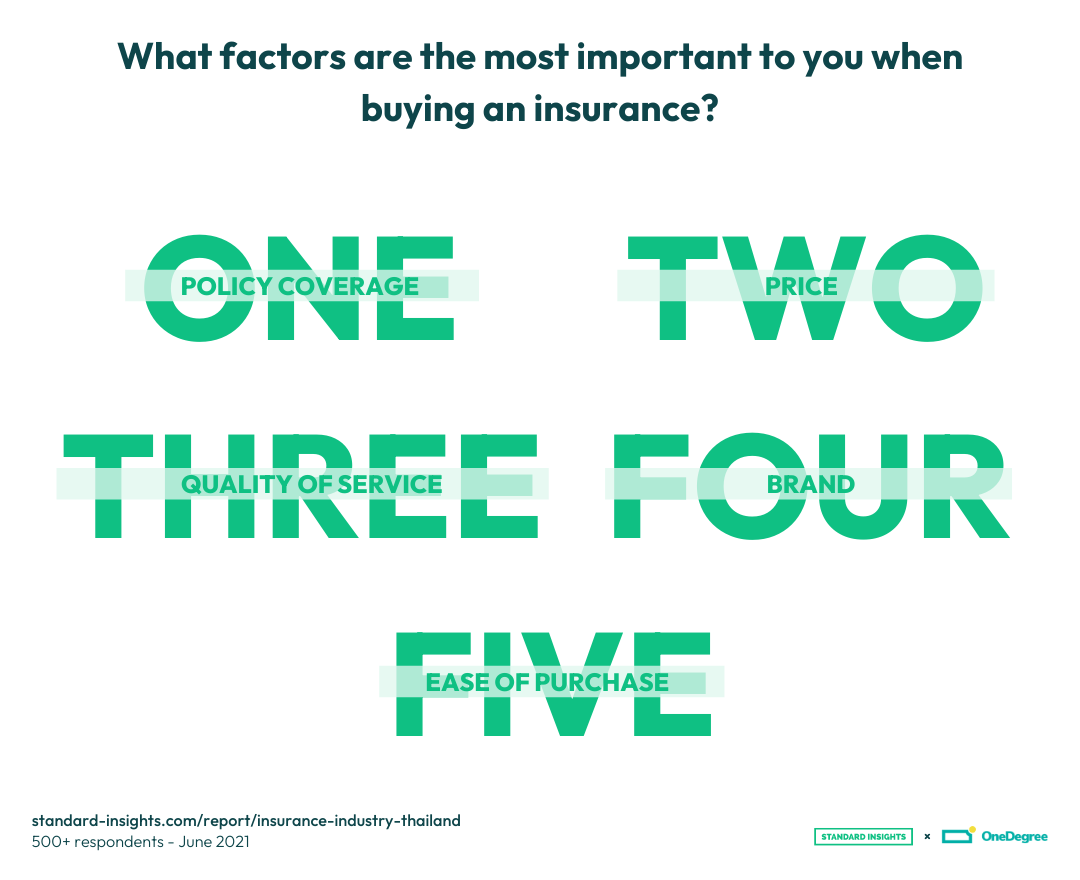
2. Price
Consumers frequently correlate price with product level, implying that a perceived high price represents good quality and vice versa. Furthermore, one of the things that boost brand image is pricing. As a result, both brand image and pricing are essential determinants in purchasing decisions.
That’s why many Thai people choose not to purchase insurance if it is too expensive (24.3% – according to our survey). Moreover, price is also considered the second important factor influencing people’s insurance purchase decisions.
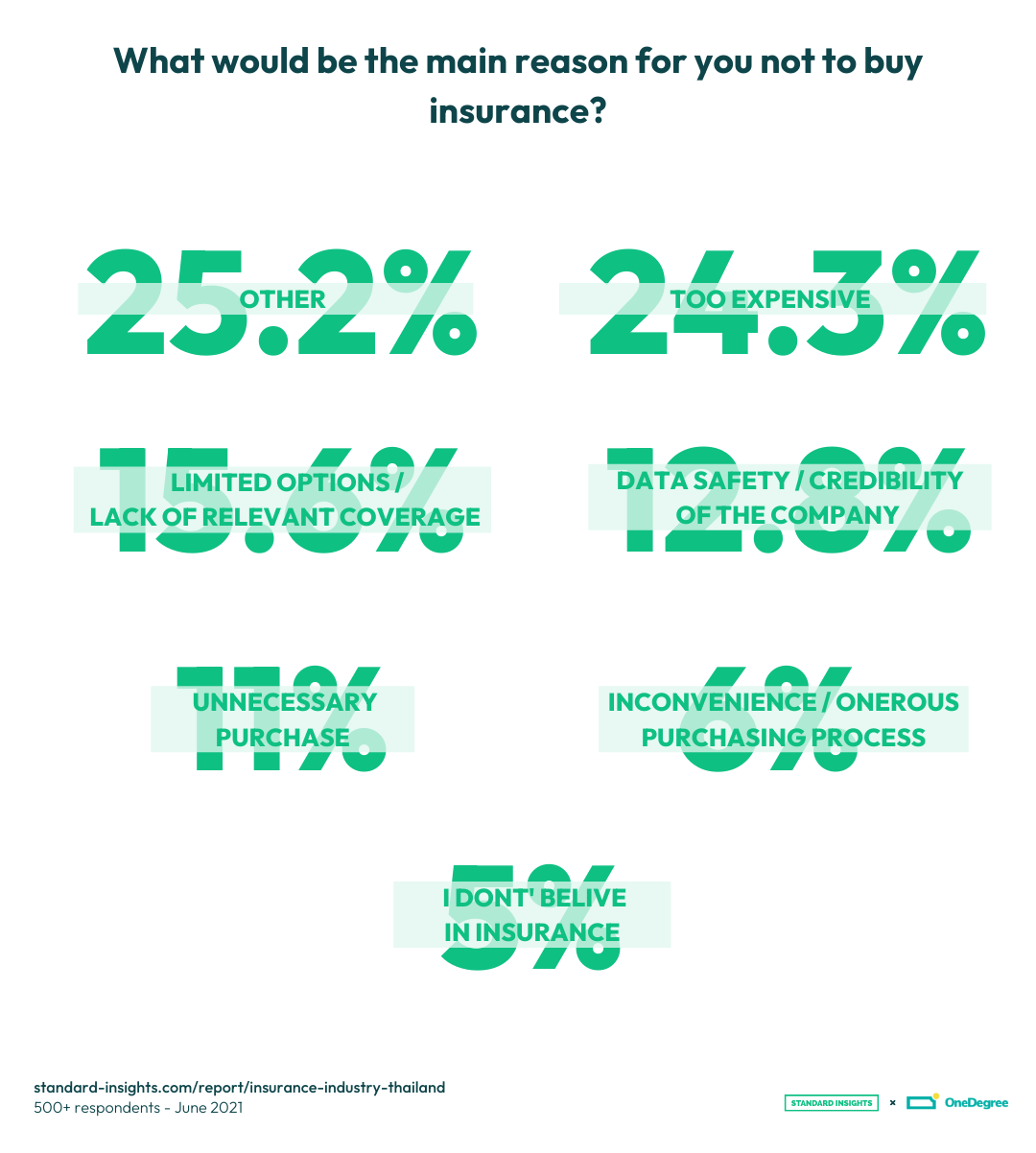
3. Quality of Service
Quality service is what sets you apart from competitors. Total client happiness is the outcome of high-quality service. When your clients are satisfied, they will tell others; when they are dissatisfied, they will also tell others. That is why favorable word-of-mouth is pivotal for every company!
People in Thailand also rank the quality of service factor as third when considering buying insurance. Therefore, insurance companies must improve the quality of service at their best if they want:
- Higher profit margins without losing customers
- More referrals
- Lower sales/ marketing costs
- Repeat purchases
- Greater customer loyalty
Our survey also shows that 74.6% of Thai people supposed that overall service quality and assistance significantly impact their loyalty toward an insurance provider.
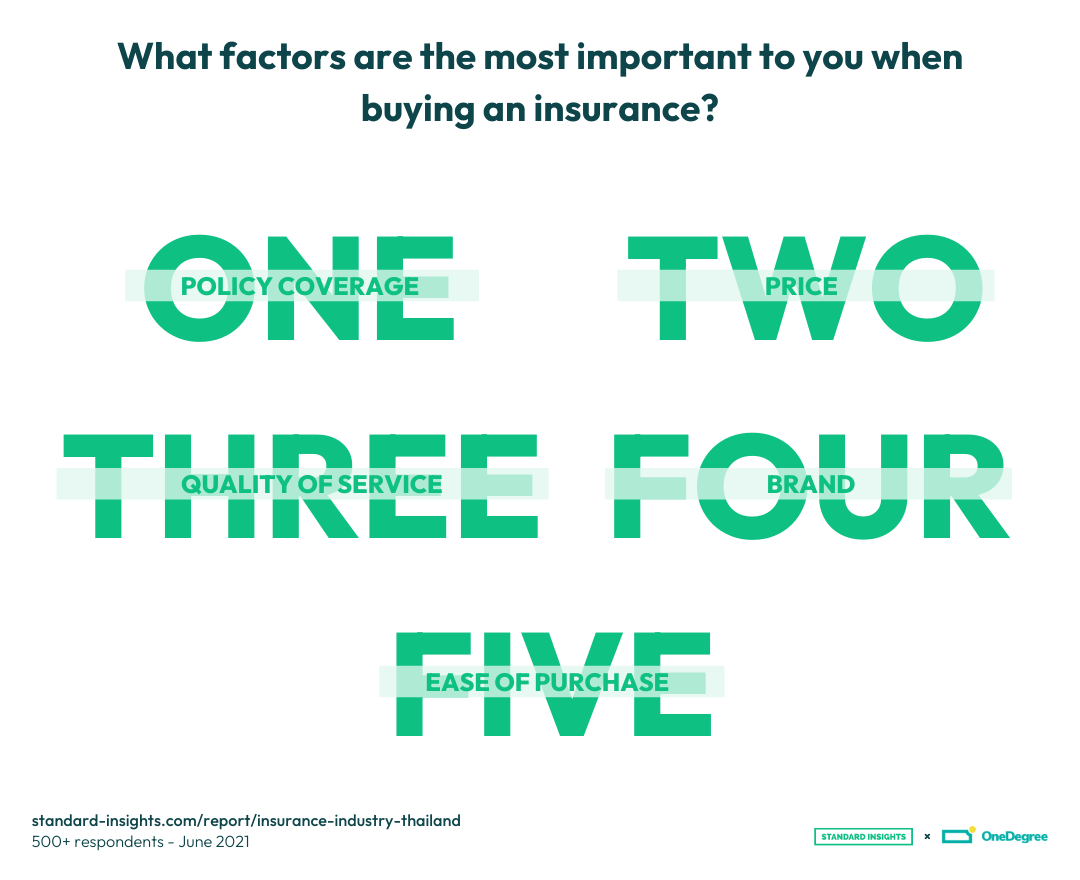
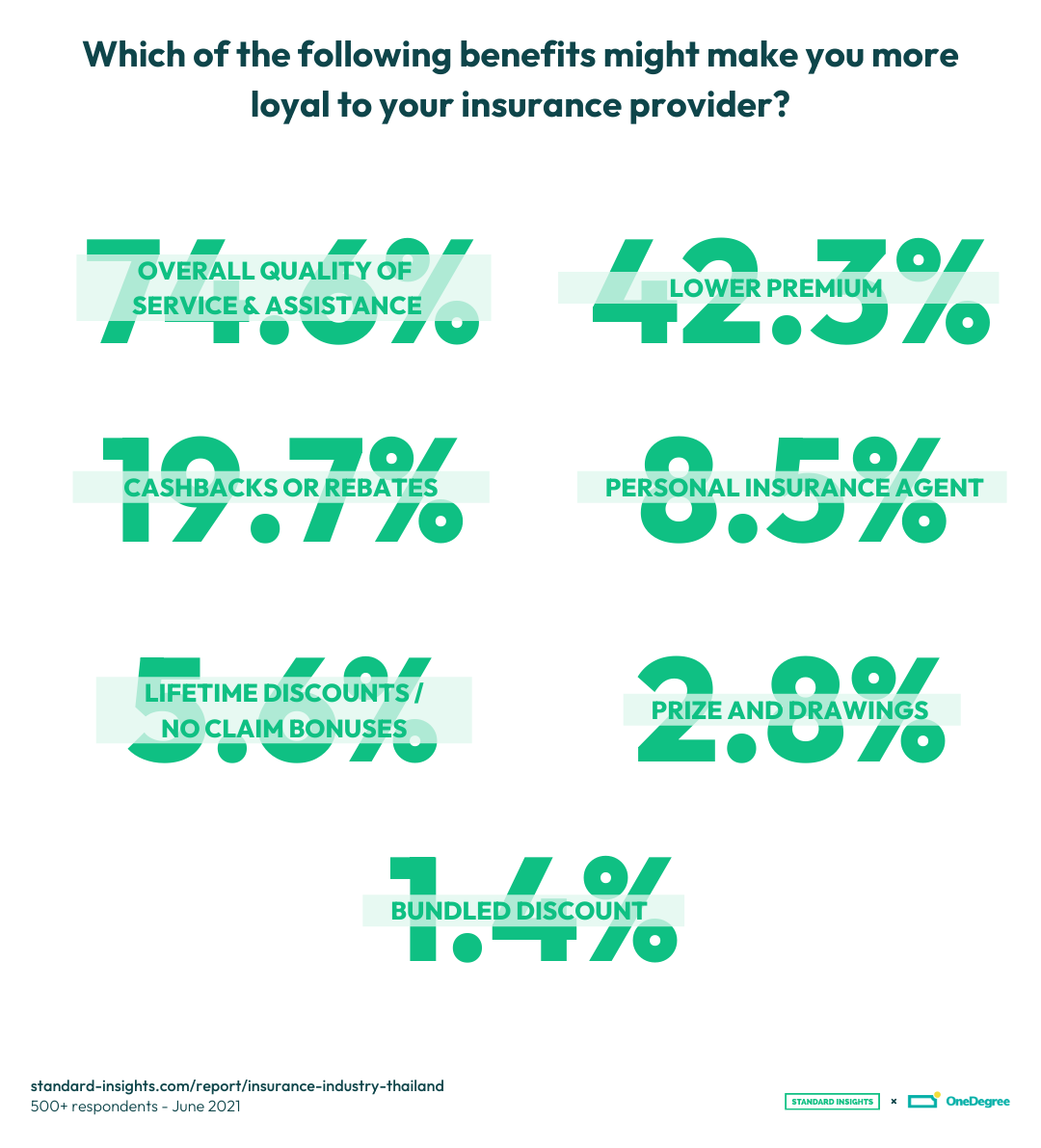
4. Word of Mouth
Word-of-mouth (WOM) occurs when customers tell their friends, family, and those with close ties about a company’s product or service.
Specifically, when it comes to purchasing an insurance policy, 48% are influenced by friends, family, and coworkers, while 20% are influenced by insurance agents, according to our survey.
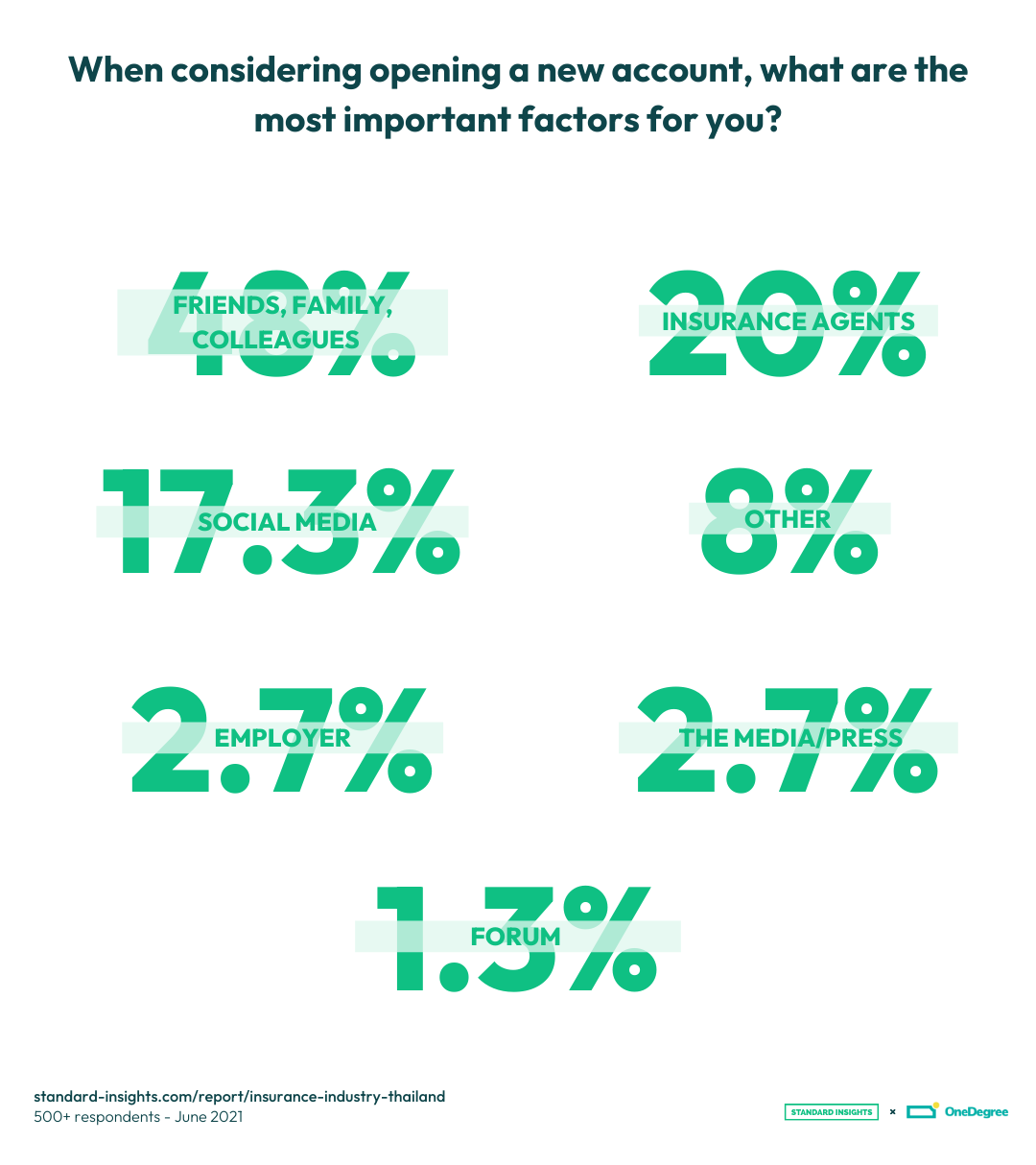
Buyers are more emotionally attached to a brand when they sense the company is listening to them. As a result, many companies have sales representatives discuss their products and services with customers in person or via a phone call. This engagement and promotional event may ignite conversations about a company’s product.
In our survey, most respondents (60%) confirmed that they preferred to interact with their insurance company through phone calls.

The Future of the Insurance Industry in Thailand
According to a recent AM Best analysis, despite a COVID-19-led economic contraction in Thailand in 2020, the country’s insurance industry expanded, driven by substantial growth in the health category.
Government-imposed COVID-19 containment measures have spurred digitization and innovation in Thailand’s insurance market, as firms compete for a share of the kingdom’s highly dynamic and evolving insurance sector.
In the insurance industry, digital transformation can enable operational efficiency, vary distribution, and bolster product development and pricing capabilities.
According to a new poll by Standard Insights, Thai buyers want a better digital experience from their insurance. In addition, more than 71.4% of policy-owning respondents in Thailand stated they preferred to contract an insurance product online.
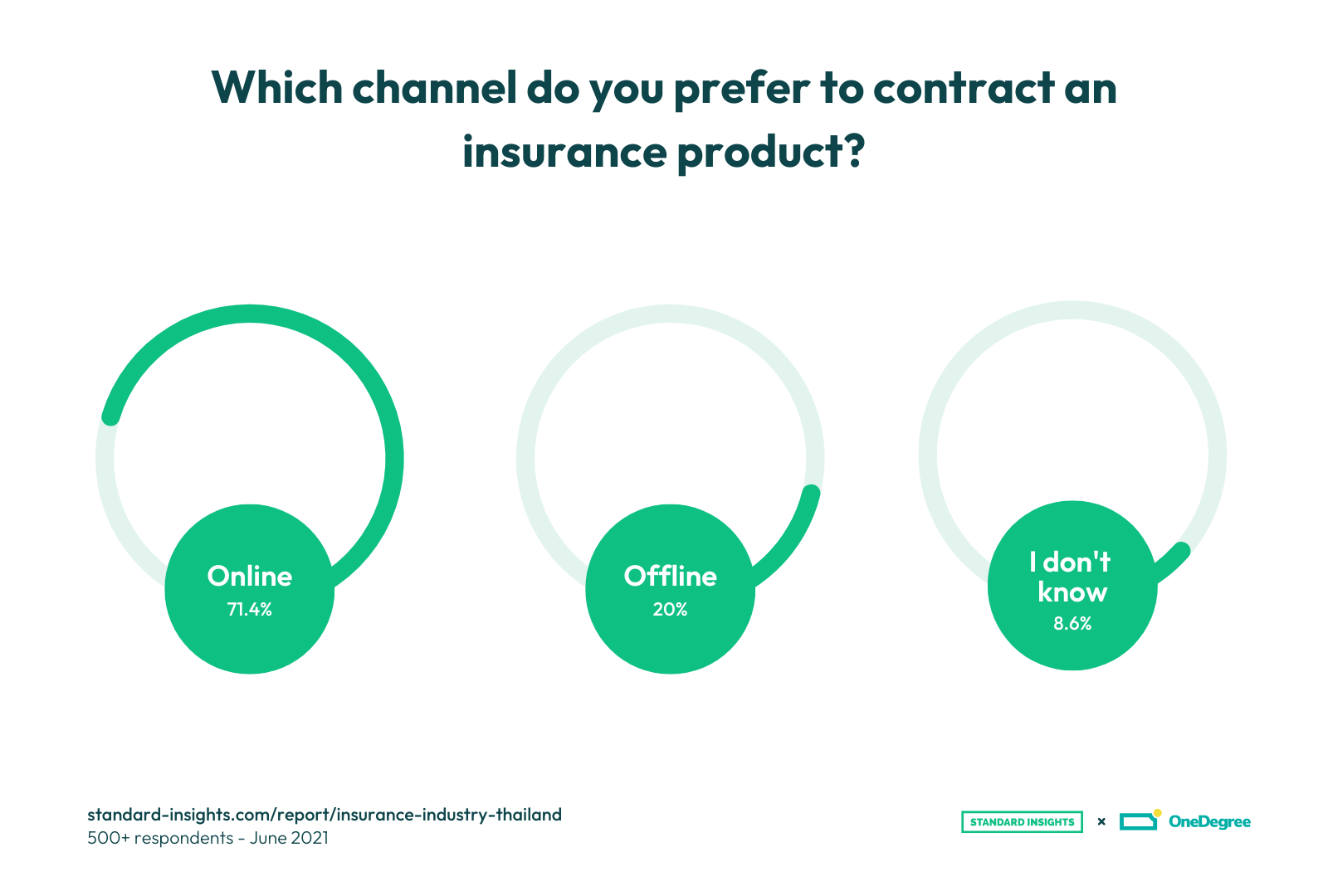
Almost a third of the respondents would submit their personal information to receive a more tailored insurance product or lower premium. It shows an openness to disclose data in exchange for a financial counterpart.
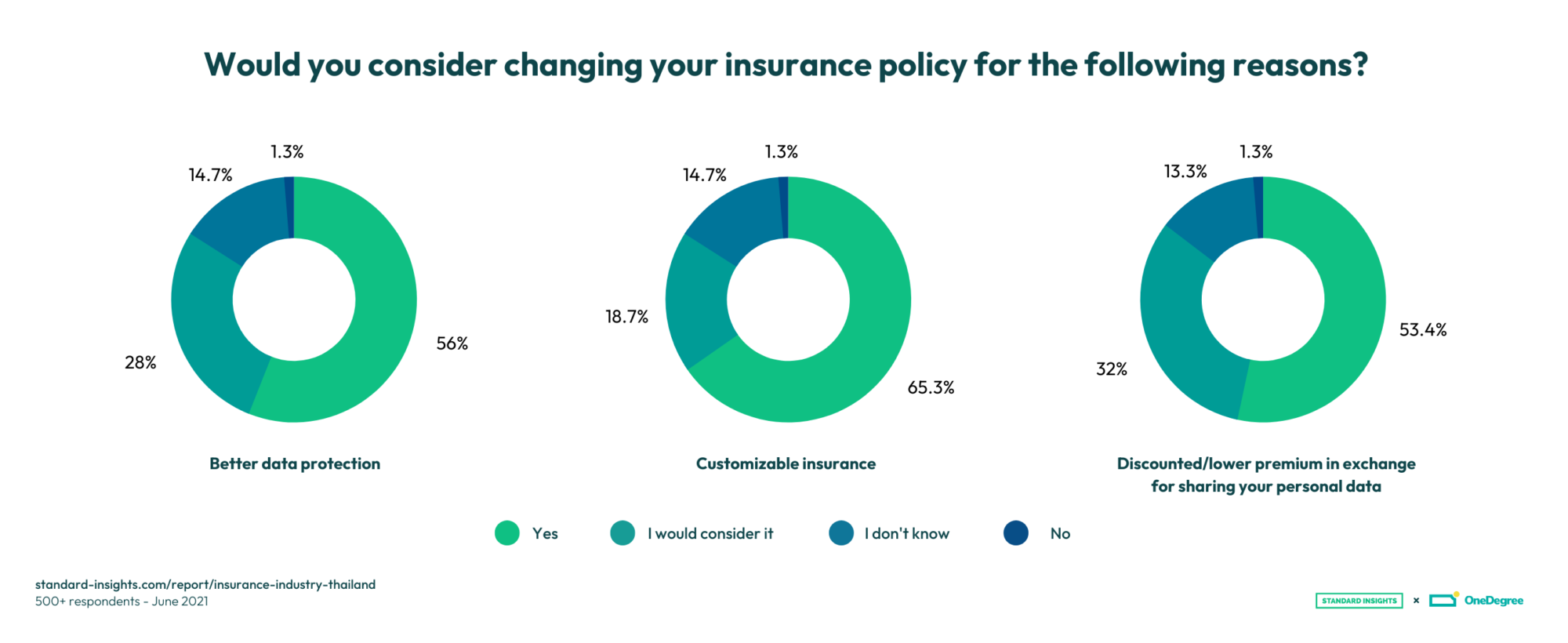
Main Takeaways
Government and insurance providers should promote more communication to increase customer awareness about the digital transformation in the insurance sector.
In addition, integrating user-friendly digital features, offering diversified insurance policies, and improving product quality for better word of mouth are less practical. Therefore, insurance buyers might feel that what they have spent is worth it!
Want to learn more about the insurance industry in Thailand and unlock the Thai consumer? Gain deep insights into what drives their preferences and decisions with our comprehensive Market Research in Thailand. Make data-backed choices with confidence, built on our rigorous methodology and commitment to quality.




